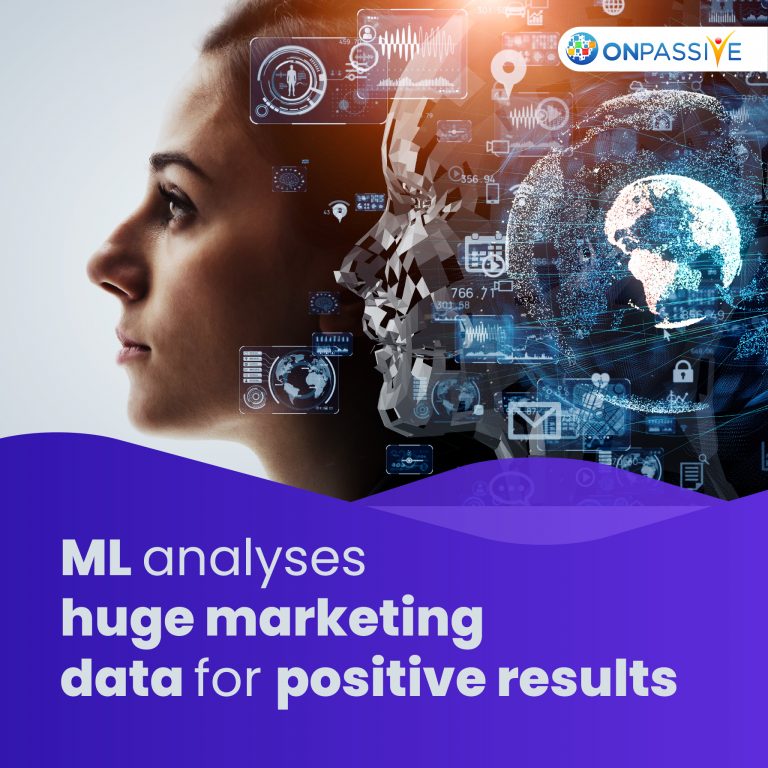
Many things influence marketing success. To develop your branding strategy, you’ll need precise consumer research, compelling content to please your audience, a strong understanding of behavioural economics, and a near-mystical ability to predict how people will evaluate your message in comparison to that of your toughest competitors. Marketers can’t succeed in the digital era unless they grasp data, analytics, and automation.
Machine learning (ML) can already help marketers enhance their performance on activities like client segmentation, creating branded collateral, extracting and classifying relevant information, customer communication, and overall productivity and output. Marketing success depends on a unit that does not understand machine learning works at a significant disadvantage in the new economy.
But hold on a second. Adopting a machine learning solution without first knowing what it does might do more harm than benefit. ML isn’t magic, and it won’t move the needle on its own until your team chooses and configures the proper ML solution for specific marketing issues.
Many marketing technology businesses that specialize in digital marketing technologies claim that their solutions are “AI-powered” or “use the most recent AI advances.” Some use cutting-edge technology, while others employ more ordinary and easily repeatable methods.
As a result, machine learning might have a massive influence on marketing success. Machine learning is already doing everything from saving up time for marketing teams to fixing challenges that marketers were unaware of.
Impact Of ML On Marketing Campaigns
● Increasing Conversions With Advanced Content Analysis
Marketers have always had to rely on A/B testing technologies to determine the optimal lexical recipes on their own. Machine learning may be used to do focused lexical studies to assist digital marketers in better understanding words, phrases, and their context uses to increase consumer interaction.
● More Products And Services To Develop
People have grown accustomed to buying in novel and efficient ways in the digital era. As a result, they have more high expectations. This gives businesses more flexibility in tailoring their marketing to particular groups within their sector or even their consumer base. Many companies are already well on their way in this direction, creating new goods and services based on ML software results.
● Optimization Of Content
Although artificial intelligence and machine learning are sometimes used interchangeably, there is a major distinction between the two. Machine learning does not attempt to outwit or replace human intelligence. Rather, it concentrates on evaluating issues and processes and determining how to improve them. A/B testing is a prominent method used by many marketers to accomplish this. Whether it’s email subject lines, Facebook ad visuals, or an article title, A/B testing allows marketing departments to test several choices and see which one resonates the most with their target audience.
● Personalization Should Be Improved
People expect companies to be concerned about them. So much so that 52% of buyers will switch brands if they don’t believe a firm is making enough effort to customize its messaging. Machine learning is the foundation of Amazon’s e-commerce customization success. To personalize the online shopping experience, they collect massive amounts of data about their customers’ online activities, interests, and previous purchases. Every touchpoint in the purchasing experience, from the emails to the product offers, is customized.
● Customers Are Engaged Via Chatbots
The pleasant chatbot that shows up in the bottom corner of the screen, giving assistance or advice shortly after a visitor enters the site, is becoming an increasingly familiar sight on many current websites. Machine learning is critical to the success of chatbots because it allows them to learn from their interactions with users over time, gathering data and analyzing it to deliver more accurate responses. Chatbots will not only eventually phase out human virtual assistants, but they will also allow businesses to revolutionize marketing operations.
Conclusion
To sum up, Machine learning is transforming our environment, and it will undoubtedly transform the digital marketing landscape. Marketers that get on this data-driven bulldozer first will be rewarded, while others will be demolished.
If you are looking for an AI-built marketing tool for your business, then an ONPASSIVE AI technology company is at the rescue. O-Post is one such marketing tool that helps in announcing marketing campaigns. To know more about the products, contact us.


